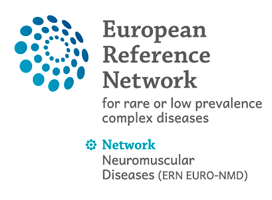26 Oct 2017
Revisiting mitochondrial diagnostic criteria in the new era of genomics
Authors:
Peter Witters MD, PhD, Ann Saada MD, PhD, Tomas Honzik MD, PhD, Marketa Tesarova PhD, Stephanie Kleinle PhD, Rita Horvath MD, PhD, Amy Goldstein MD, PhD & Eva Morava MD, PhD
Purpose
Diagnosing primary mitochondrial diseases (MDs) is challenging in clinical practice. The mitochondrial disease criteria (MDC) have been developed to quantify the clinical picture and evaluate the probability of an underlying MD and the need for a muscle biopsy. In this new genetic era with next-generation sequencing in routine practice, we aim to validate the diagnostic value of MDC.
Methods
We retrospectively studied MDC in a multicenter cohort of genetically confirmed primary MD patients.
Results
We studied 136 patients (61 male, 91 nuclear DNA (nDNA) mutations). Forty-five patients (33%) had probable MD and 69 (51%) had definite MD according to the MDC. A muscle biopsy was performed in 63 patients (47%). Patients with nDNA mutations versus mitochondrial DNA mutations were younger (6.4 ± 9.7 versus 19.5 ± 17.3 y) and had higher MDC (7.07 ± 1.12/8 versus 5.69 ± 1.94/8). At a cutoff of 6.5/8, the sensitivity to diagnose patients with nDNA mutations is 72.5% with a positive predictive value of 69.5%. In the nDNA mutation group, whole-exome sequencing could diagnose patients with lower scores (MDC (6.84 ± 1.51/8) compared to Sanger sequencing MDC (7.44 ± 1.13/8, P = 0.025)). Moreover 7/8 patients diagnosed with possible MD by MDC were diagnosed by whole-exome sequencing.
Conclusion
MDC remain very useful in the clinical diagnosis of MD, in interpreting whole-exome results and deciding on the need for performing muscle biopsy.

